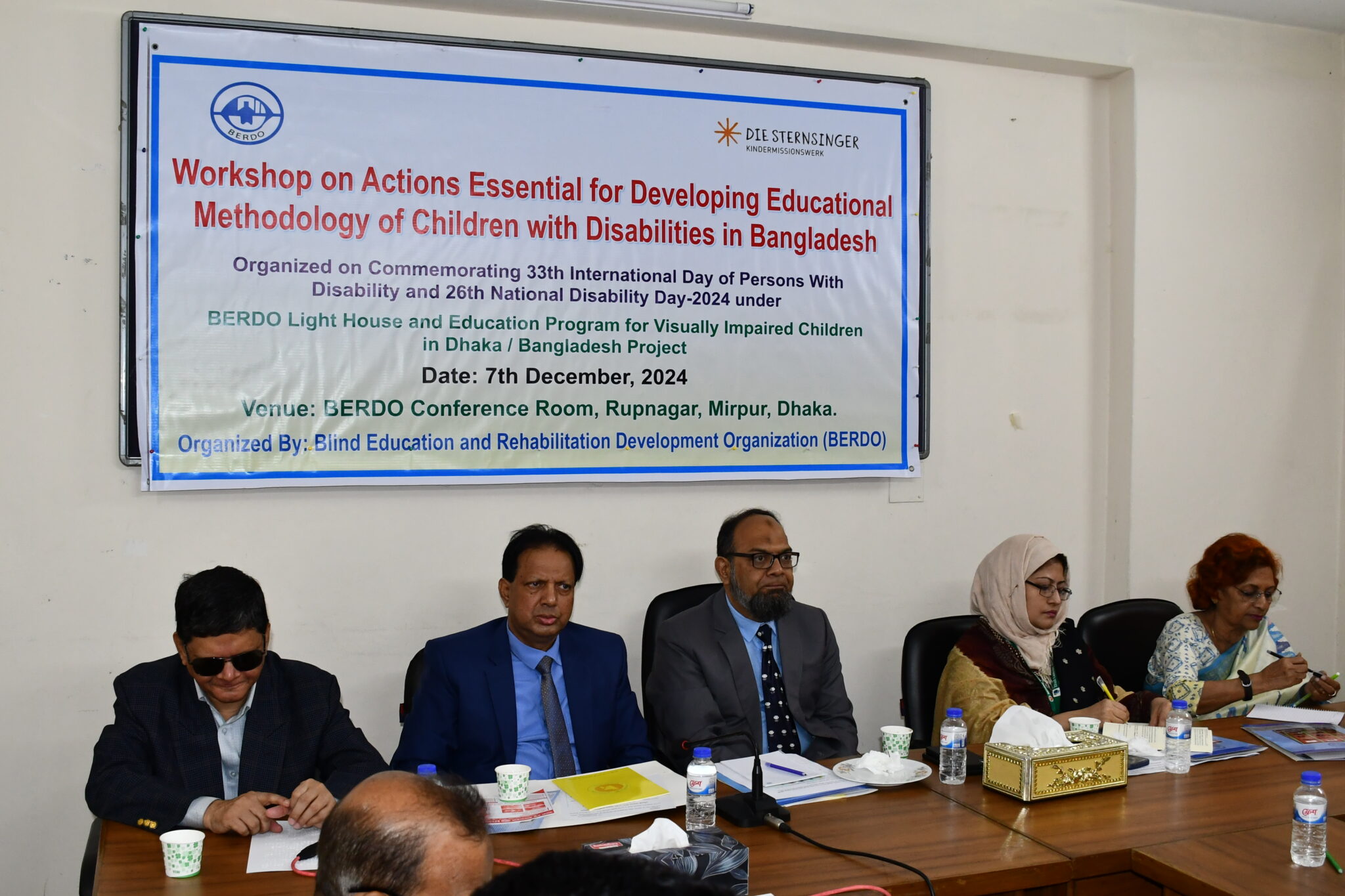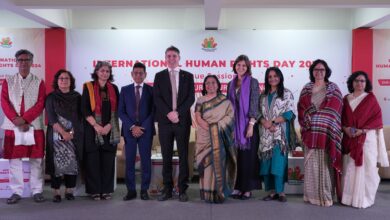Development of the country is not possible leaving behind the children with disabilities
Speakers observed at BERDO workshop

PARVEZ BABUL
Saturday, December 7, 2024. A workshop on “Actions Essential for Developing Educational Methodology of Children with Disabilities in Bangladesh” was held at Blind Education and Rehabilitation Development Organization (BERDO) office in Mirpur, Dhaka. It was organized by BERDO on commemorating 33rd International Day of Persons with Disabilities and 26th National Day of Persons with Disabilities in Bangladesh.
Principal of government Rupnagar model school and college Md. Alauddin Al Azad; Mukhlesur Rahman, additional Director (Deputy Secretary) of Bangladesh National Social Welfare Council were present as distinguished guests among others. Md. Alauddin Al Azad said, “I will offer all the possible assistance for the education of children with disabilities.”
Mukhlesur Rahman described their activities and increased budget of the government for the person with disabilities. He pointed out importance of inclusion of the children and persons with disabilities for the mainstream development leaving no behind. He has given emphasize on equality and equity of the persons with disabilities.
“On behalf of the government of Bangladesh we will offer all the support to BERDO and other organizations working in the field of disabilities. We will also consider to implementing all the recommendations of this workshop in line with the government policy and Sustainable Development Goals (SDGs),” Mukhlesur Rahman mentioned.
Asfia Sirat, senior assistant secretary of Ministry of Women and Child Affairs; Jasmine Akhter, director of National Skill Development Authority (NSDA); Lovely Khanam, assistant director of Social Services Directorate (Research, evaluation, publication and public relations branch); Azim Kabir, research officer, Directorate of Secondary Education, Irshad Ullah, professor of National University, poet and journalist Parvez Babul, some visually impaired students, teachers, journalists, other dignitaries, were present and spoke at the workshop among others.
Speakers observed at the workshop that children with disabilities are integral part of the society. But they are neglected and deprived of their rights. Development of the country is not possible without them. They should be included in the mainstream of national development. Their lives and livelihoods should be broadened by integrating them into mainstream education and creating employment.
For those logical reasons education opportunities should be created for them at the primary, secondary and higher levels of the country. That requires curriculum changes, revisions and overall research for the updated evidence-based data and information.
The concerned government officials assured all kinds of support and cooperation including job-oriented inclusive education and training of visually impaired students, developing educational materials, teachers’ training and employment of both students and teachers accordingly.
The workshop recommends a number of issues for visually impaired children and children with other disabilities. That includes provision of Braille language learning for descriptive learning through illustrations.
Saidul Huq, executive director of BERDO who receives the prestigious national “Ekushey podok” of the government of Bangladesh presided over and moderated the workshop. He underscored the stakeholders engagement and said, “BERDO has been working for the welfare of the children and people with disabilities since its inception. BERDO is to provide education, medical service, financial facilities for income generating, preventing malnutrition, make awareness, hygienic support to the people with disabilities as well for self-reliance to them.”
Saidul further said, “BERDO has a modern Braille press and six braille printers. There are 60 visually impaired students continuing their general and technical education in the residential school at BERDO. There is an eye hospital providing treatments to the blind patients. Efforts are underway to establish a school for the girls with disabilities.”
In terms of inclusive education for the visually impaired children, poet and journalist Parvez Babul said, “Government should work through coordination and integration of all the ministries to take the support of local government to identify and ensure school enrollment of all the children with disabilities at rural and urban areas.”
“Keeping ahead the SDGs government should implement projects for three years from 2025 to 2028 to ensure employment of all the people with disabilities in accord with their education and skills,” Parvez Babul added.
Discussant discussed about the “Rights and Protection of Persons with Disabilities Act-2013” at the workshop also and urged the government to implement it properly so that the children, women and other people with disabilities can access their due human rights.





